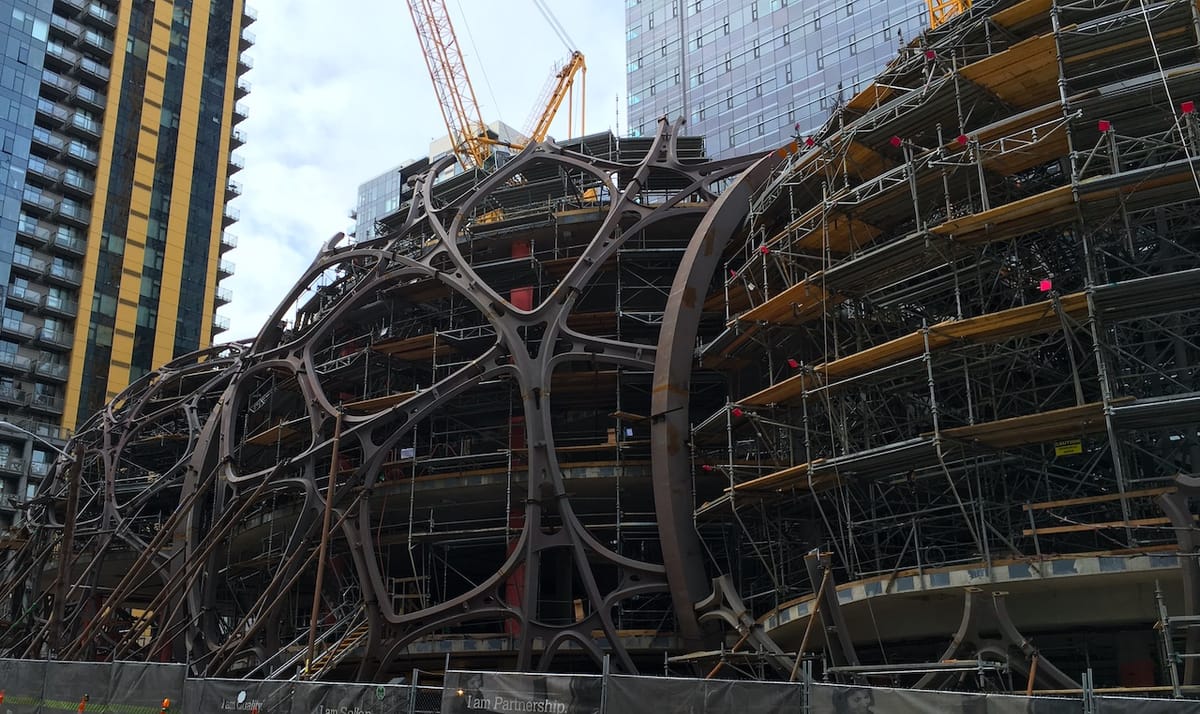breaking the walls

Every day we come across stories about how the ultra-wealthy are different from us. Their private jets take them at a moment’s notice to any place they desire. Their mansions and estates sit on acres of lush terrain and a security detail. The same can be true no matter how far we go down the scale. People with money still find ways to separate themselves from others. It might be clean, well-kept neighborhoods or private schools. It might be support for elected officials who will “sweep” people living homeless out of parks. Even when I wear a pair of headphones in public, I’m closing off my senses from the people around me.
The act of isolation isn’t the same across these groups. A person living in a tent isn’t choosing the same type of isolation as a person who lives in a castle. People with power have the freedom to hide from the consequences of their actions. They can shield themselves from the communities they displace, the workers they exploit, or the people they ignore.
Even before the pandemic, studies showed that isolation is unhealthy for humans. It can lead to loneliness, unhappiness, apathy, and more. People who don’t seek out large social gatherings don’t disprove this. Most introverts still seek out engagement with others, but on their own terms. No matter who we are, we need to engage with our community and the people in it. Here are a few ways to think about this.
no one is island
Most people think of themselves as individuals. But every human is actually trillions of organisms living together. Even a single organ—like the skin—is a complex system of trillions of cells, bacteria, viruses, and fungi. Consider the number of humans and animals in a single apartment building. The number of organisms on a city block, or a region, or a continent. Each of us is an ecosystem in an ecosystem that sprawls into larger systems until we can see no further.
We are all connected. We have an obligation to think about our privilege and how we may live at the expense of others. We have to engage with the world around us. Even the most isolated among us are part of, and influenced by, our environment.
if you’re in the middle, you’re in the way
In their work the secret is to begin, the publication Crimethinc lays out the challenges we face.
“Ready or not, you are already engaged in the struggles of our time. We were all born into them. It’s not a question of whether to fight, but how. Do we seek individual solutions or make common cause? Do we address one problem after another, or strike at their roots? Do we keep investing resources in the institutions that are failing us, or stake our lives on something else?”
There are many of us out there searching every day for that something else. This is not a time to be timid. We are in a fight for our lives. People in power who risk losing power will often lash out at the most vulnerable people in society. In Texas, that means the trans kids who are bearing the brunt of their assault right now. Here in Seattle, it means people living homeless. It means people who want public safety without a police force that threatens that safety. Not every society marginalizes the same people. Being pro-queer or pro-labor in a state where that’s the norm is not enough.
There is no binary for many of the cultural conflicts we face today. There are no “sides.” If you don’t have an opinion on an issue, seek out people who do. What factors in your life might have freed you from needing to have an opinion? What privilege keeps you from having to know how much an overnight shelter costs? How lucky must you be never to know if you can use an EBT card to buy prepared food at the grocery store? For the record, you can’t.
The advice process says to leave important decisions up to the people who would be most affected by them. What if we set policy like this? What if we lent our power to give people housing rather than kicking them out of “our” parks? And yes, I’m still mad that Seattle rejected putting an abolitionist on the city council (I own that).
hey, there’s always public shaming
There’s one more way to confront the walls that the wealthy and powerful put up around themselves: make the walls meaningless. In 2016, a woman in Florida confronted then-governor Rick Scott at a Starbucks. “You’re an asshole!” the woman yelled to his face. His cuts to Medicaid in their state pushed her off healthcare she could afford. To him, the cuts meant a small bump to his approval rating from truly heartless people. To her, it meant her life and wellbeing. People in power still rely on the powerless for everything they have. “Shame on you, Rick Scott!,” she said. “Rich people like you don’t know what to do.” Sometimes we have to remind people in power that they are people, too. They make mistakes. They have weaknesses and vanity. No matter how walled off they think they are, we can still get to them.
For all of us, we need to find a way to tell each other when we hurt. We can be vulnerable without losing our own strength. It’s the best chance we have at a world we can all live in.



